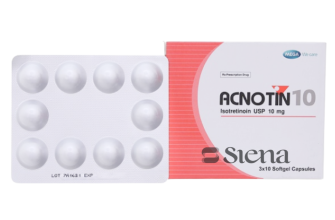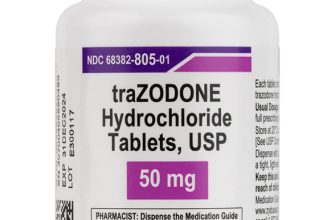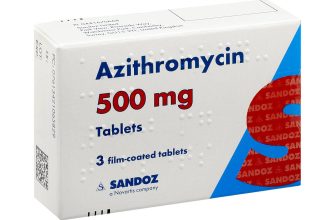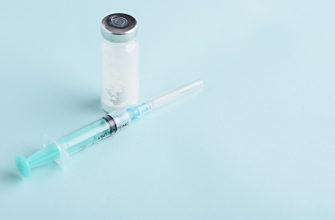Regular bone density checks are crucial if you’re taking Prednisone. Long-term use significantly increases your risk of osteoporosis, a condition causing fragile bones prone to fractures. This isn’t a given, but proactive management is key.
Aim for at least 1200mg of calcium and 800 IU of vitamin D daily. Your doctor can help you determine the best supplementation strategy. A balanced diet rich in calcium-containing foods like dairy products, leafy greens, and fortified cereals also contributes significantly to bone health. Discuss dietary changes with a nutritionist.
Regular weight-bearing exercise, such as walking, jogging, or weight training, strengthens bones and minimizes bone loss. Aim for at least 30 minutes of moderate-intensity exercise most days of the week. Consult your physician before starting a new exercise routine to ensure its safety given your health condition.
Smoking cessation is another important step. Smoking accelerates bone loss. Quitting reduces your risk of fractures and improves overall health. Your doctor can provide resources and support for smoking cessation. This, combined with a healthy lifestyle, provides the best protection against Prednisone-induced bone loss. Regular monitoring of your bone density will help you manage your health proactively.
- Prednisone and Bone Loss: A Detailed Guide
- Understanding the Risk
- Protecting Your Bones
- Medication and Lifestyle Adjustments
- Monitoring Your Progress
- Specific Considerations
- Additional Support
- How Prednisone Affects Bone Density
- Risk Factors for Prednisone-Induced Osteoporosis
- Preventing Bone Loss While on Prednisone
- Diagnosing and Monitoring Bone Loss
- Bone Density Tests
- Other Diagnostic Tools
- Monitoring Your Progress
- Treatment Options for Prednisone-Related Osteoporosis
- Lifestyle Modifications
- Other Treatments
- Long-Term Management of Bone Health After Prednisone
- Dietary Changes and Supplements
- Lifestyle Modifications
- Medication Management
- Ongoing Monitoring
- Further Considerations
- Fall Prevention
Prednisone and Bone Loss: A Detailed Guide
Consult your doctor immediately if you’re prescribed prednisone and have concerns about bone health. They can assess your risk and recommend appropriate measures.
Understanding the Risk
Prednisone, a powerful corticosteroid, interferes with bone formation. Long-term use (over three months) significantly increases your risk of osteoporosis, characterized by weakened bones prone to fractures. The higher the prednisone dose and the longer you take it, the greater your risk. Women are generally at higher risk than men due to existing hormonal factors impacting bone density.
Protecting Your Bones
Several strategies can help mitigate bone loss. These include regular weight-bearing exercise (walking, jogging, weight training) to stimulate bone growth. A calcium-rich diet, supplemented with vitamin D as needed, is crucial. Your doctor may recommend a bone density scan to monitor changes. Furthermore, they may prescribe medication like bisphosphonates or denosumab to further protect your bone health.
Medication and Lifestyle Adjustments
Always adhere to your prescribed prednisone dosage. Don’t adjust or stop your medication without consulting your doctor. Avoid smoking, as it accelerates bone loss. Limit alcohol consumption, as excessive alcohol can negatively impact bone health. Maintain a healthy weight to reduce stress on your bones.
Monitoring Your Progress
| Strategy | Action | Frequency |
|---|---|---|
| Weight-bearing exercise | 30 minutes most days of the week | Daily or as often as possible |
| Calcium intake | Consume calcium-rich foods like dairy, leafy greens | Daily |
| Vitamin D levels | Get regular blood tests to check levels | Annually, or as recommended by doctor |
| Bone density scan | Undergo a DEXA scan as advised by your doctor | As recommended by your doctor |
Specific Considerations
Additional Support
Join support groups for people taking prednisone or dealing with osteoporosis. Sharing experiences and advice can be invaluable. Open communication with your doctor is also key; they can tailor a plan to your unique needs and circumstances.
How Prednisone Affects Bone Density
Prednisone, a powerful corticosteroid, interferes with your body’s ability to absorb calcium, a key component of healthy bones. This leads to decreased bone density, increasing your risk of fractures.
Here’s how it works:
- Reduced Calcium Absorption: Prednisone inhibits the absorption of calcium from your diet, meaning your body receives less of this crucial bone-building mineral.
- Increased Bone Breakdown: Prednisone speeds up the process of bone resorption – the breakdown of bone tissue. This outweighs the rate of bone formation.
- Decreased Bone Formation: The drug also interferes with the formation of new bone tissue, further contributing to bone loss.
The severity of bone loss depends on several factors including dosage, duration of prednisone use, age, and overall health. Higher doses and longer treatment periods generally lead to more significant bone loss.
To mitigate these effects:
- Maintain a Calcium-Rich Diet: Consume foods rich in calcium, such as dairy products, leafy green vegetables, and fortified foods.
- Increase Vitamin D Intake: Vitamin D is essential for calcium absorption. Sunlight exposure, dietary sources (e.g., fatty fish), and supplements can help.
- Consider Weight-Bearing Exercise: Regular weight-bearing exercise, such as walking, jogging, or weight training, stimulates bone growth and strengthens bones.
- Discuss Bone Density Testing: Your doctor might recommend bone density testing (DEXA scan) to monitor your bone health while on prednisone.
- Talk to Your Doctor about Medications: Bisphosphonates or other medications to prevent bone loss may be recommended, depending on your individual needs and risk factors.
Regular communication with your doctor is key. They can tailor a management plan specific to your situation, helping you minimize the risk of prednisone-induced bone loss and maintain strong, healthy bones.
Risk Factors for Prednisone-Induced Osteoporosis
Higher prednisone doses increase your risk. Daily doses exceeding 5mg for three months significantly raise the chance of bone loss.
Duration of treatment matters. Longer prednisone use leads to greater bone density reduction. The risk escalates with prolonged therapy.
Age is a key factor. Older adults, especially postmenopausal women, are more susceptible to prednisone-induced osteoporosis due to already lower bone density.
Pre-existing conditions influence risk. Individuals with conditions like rheumatoid arthritis, already taking other medications that affect bone health (such as certain anti-seizure drugs), or with a family history of osteoporosis experience a heightened risk.
Lifestyle choices play a role. Low calcium intake, insufficient vitamin D levels, smoking, and a sedentary lifestyle exacerbate bone loss, interacting negatively with prednisone’s effects.
Genetic predisposition contributes. Certain genetic variations increase individual susceptibility to bone loss, potentially worsening the effects of prednisone.
Poor nutrition impacts bone health. A diet lacking in calcium, vitamin D, and other essential bone-building nutrients increases your vulnerability to prednisone-related osteoporosis.
Alcohol consumption contributes significantly to bone loss. Excessive alcohol use weakens bones, compounding the negative impact of prednisone.
Preventing Bone Loss While on Prednisone
Maintain a healthy diet rich in calcium and vitamin D. Aim for 1200 mg of calcium daily and supplement if needed. Consider foods like dairy, leafy greens, and fortified cereals.
Engage in regular weight-bearing exercise. Think brisk walking, jogging, or strength training at least three times a week. This stimulates bone growth.
Talk to your doctor about bisphosphonates or other medications that protect bone health. These drugs can significantly reduce the risk of fractures.
Quit smoking. Smoking significantly increases bone loss risk. Your doctor can assist with cessation programs.
Limit alcohol consumption. Excessive alcohol intake interferes with calcium absorption and weakens bones.
Get enough sunlight or take vitamin D supplements. Sunlight triggers vitamin D production, crucial for calcium absorption. Your doctor can recommend appropriate dosage.
Regularly monitor your bone density. Bone density scans help detect early signs of osteoporosis and guide treatment.
Discuss your medication regimen with your doctor. They might adjust your prednisone dose or prescribe other drugs to minimize side effects.
Consider adding a bone-healthy diet supplement. Always consult with your doctor before starting any new supplements.
Diagnosing and Monitoring Bone Loss
Your doctor will likely begin by assessing your risk factors for osteoporosis, considering your age, sex, medical history, and family history of fractures. A detailed discussion of your medication use, including Prednisone dosage and duration, is crucial.
Bone Density Tests
The primary diagnostic tool is a bone density test, specifically a Dual-Energy X-ray Absorptiometry (DEXA) scan. This painless test measures bone mineral density (BMD) in your hip and spine, providing a T-score that compares your bone density to that of a healthy young adult. A T-score of -1.0 or higher is considered normal, while a T-score between -1.0 and -2.5 indicates osteopenia (low bone mass), and a T-score of -2.5 or lower indicates osteoporosis.
Other Diagnostic Tools
In certain cases, your doctor might order additional tests, such as blood tests to assess calcium, vitamin D, and parathyroid hormone levels. These tests help rule out other medical conditions that could contribute to bone loss. Fracture history is also a strong indicator; a past fracture increases your risk of future ones. Regular follow-up DEXA scans allow for monitoring the effectiveness of treatment and bone loss progression. Your doctor will determine the appropriate frequency of these scans based on your individual needs and risk profile.
Monitoring Your Progress
Consistent monitoring is key. Regular communication with your healthcare provider is crucial for discussing your results and adjusting your treatment plan as needed. Lifestyle changes such as increased calcium and vitamin D intake, regular weight-bearing exercise, and smoking cessation, alongside medication adjustments, all contribute to managing bone health. Active participation in your care ensures the best possible outcomes.
Treatment Options for Prednisone-Related Osteoporosis
First, discuss medication options with your doctor. Bisphosphonates, such as alendronate or risedronate, are frequently prescribed to increase bone density. These medications slow bone loss. Denosumab, a monoclonal antibody, is another effective choice; it inhibits bone resorption.
Lifestyle Modifications
Regular weight-bearing exercise, such as walking or weight training, strengthens bones. Aim for at least 30 minutes most days of the week. Include calcium and vitamin D rich foods in your diet. If dietary intake is insufficient, your doctor may recommend supplements. Quit smoking; smoking significantly increases bone loss risk. Limit alcohol consumption.
Other Treatments
In severe cases, teriparatide, a parathyroid hormone, may be used to stimulate bone formation. Your doctor will assess your individual risk factors and health status to determine the most appropriate treatment plan. Regular bone density scans monitor treatment effectiveness and allow for timely adjustments.
Long-Term Management of Bone Health After Prednisone
Schedule regular bone density scans to monitor your bone health. Frequency depends on your individual risk factors and your doctor’s recommendation, but generally, annual or biennial scans are common after long-term prednisone use.
Dietary Changes and Supplements
Consume a diet rich in calcium and vitamin D. Aim for 1200 mg of calcium daily and at least 600 IU of vitamin D. Consider calcium-rich foods like dairy, leafy greens, and fortified foods. Supplement with calcium and vitamin D if dietary intake is insufficient. Your doctor can help determine appropriate dosages.
- Discuss Vitamin K2 supplementation with your doctor; it aids calcium absorption and bone health.
- Increase your protein intake to support bone strength. Lean meats, fish, beans, and lentils are good sources.
Lifestyle Modifications
Regular weight-bearing exercise is key. Aim for at least 30 minutes most days of the week. Walking, jogging, hiking, and strength training are excellent options. This helps stimulate bone growth and improve bone density.
- Quit smoking. Smoking significantly increases the risk of osteoporosis.
- Limit alcohol consumption. Excessive alcohol intake weakens bones.
- Maintain a healthy weight to reduce stress on your bones.
Medication Management
Discuss bisphosphonates or other bone-protecting medications with your doctor. These can help prevent further bone loss or even increase bone density in some cases. Your doctor will assess your risk and determine the best course of action.
Ongoing Monitoring
Maintain open communication with your doctor and endocrinologist. Regular check-ups are essential for monitoring your bone health and making any necessary adjustments to your treatment plan. Report any new pain or fractures immediately.
Further Considerations
Fall Prevention
Reduce your risk of falls by addressing any hazards in your home, like loose rugs or poor lighting. Use assistive devices, such as canes or walkers, if needed. Regular exercise can improve balance and coordination.










